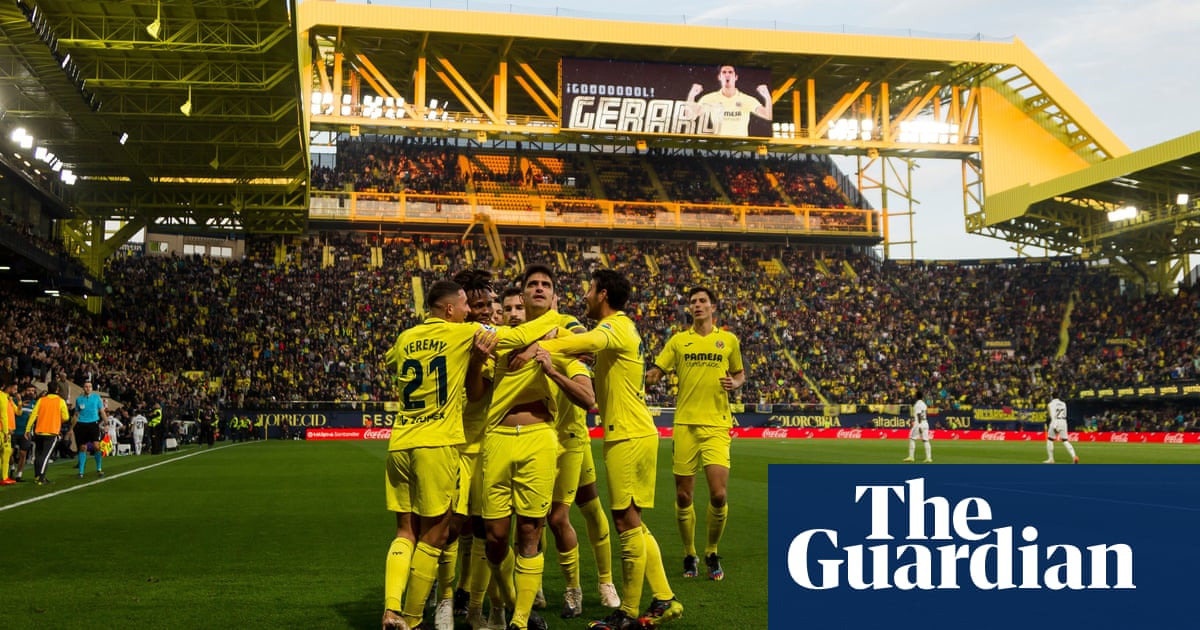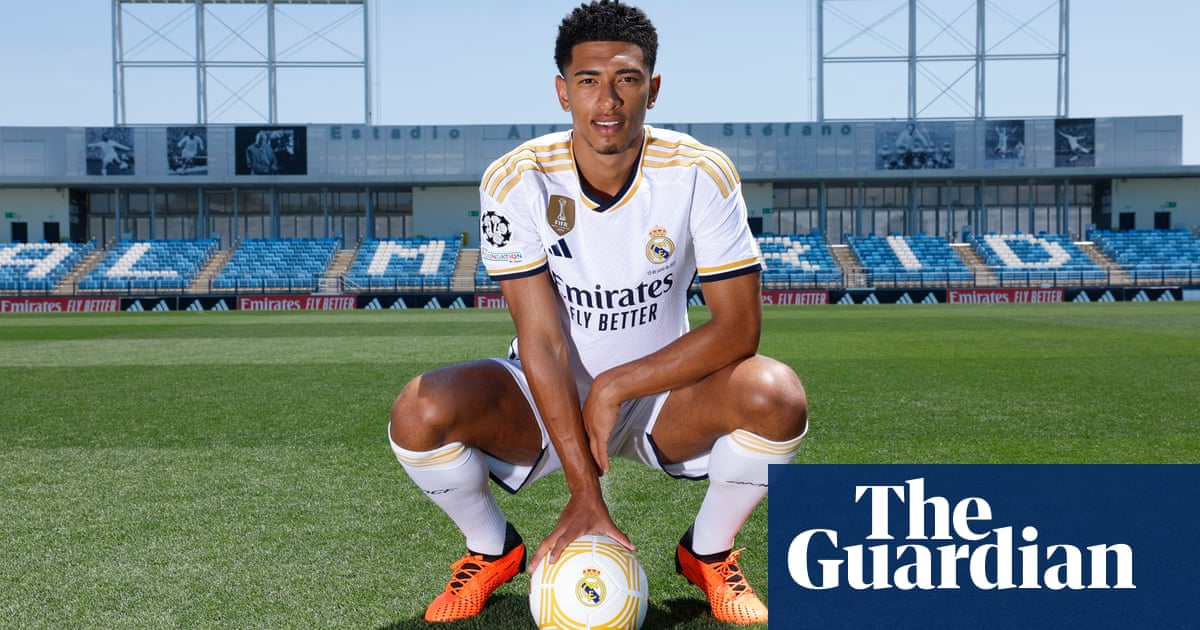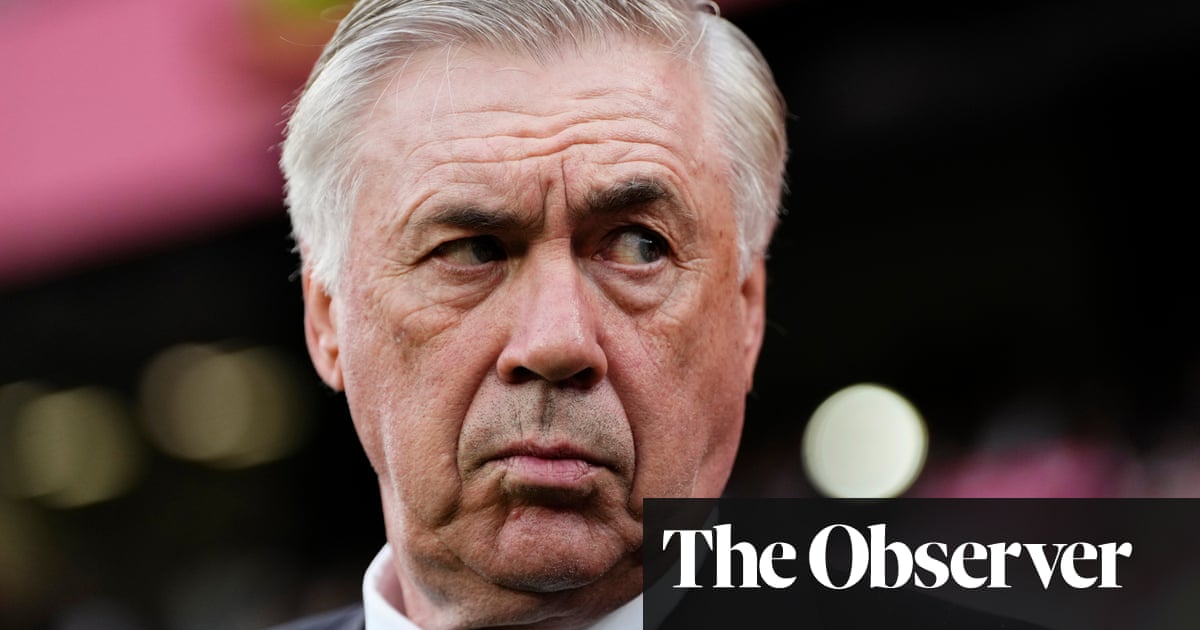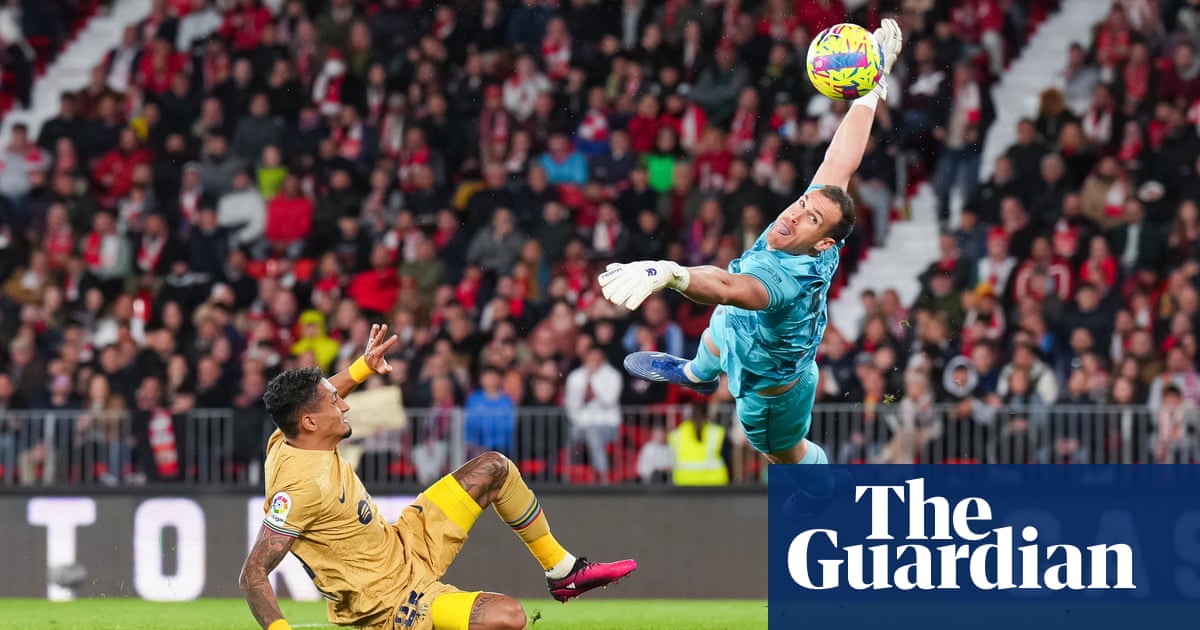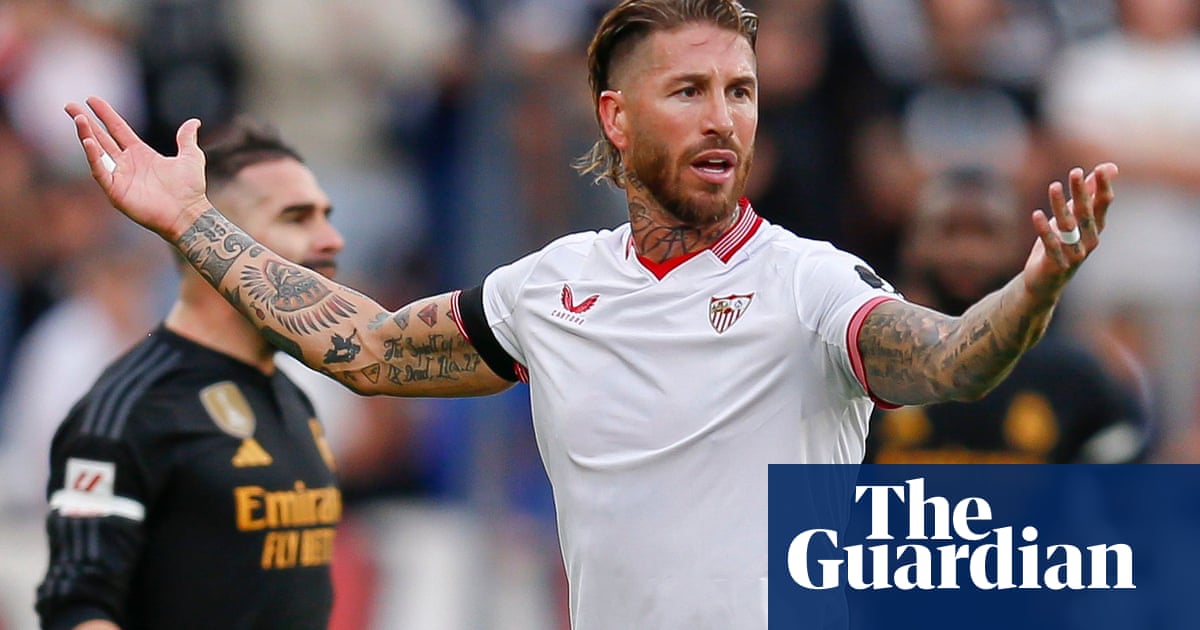
At the end of Real Madrid’s 1-1 draw at Sevilla on Saturday evening, the battle finally over and all the better for the bruises, Sergio Ramos turned to the camera following him across the grass as he hugged old friends and waved to even older ones, and smiled. For the first time since he had left the Santiago Bernabéu, the most successful captain in the history of the most successful club, he had faced his former team, a 37-year-old still playing back where it had all begun, and he had come this close to doing the most Sergio Ramos thing of all. “I had it,” he said. “I had it, just there. And it got away.”
The clock had showed 93.52, Ramos Time on Ramos Day, when Suso curled a ball into the area and from somewhere in the crowd, he rose again. Here it was: another story as unbelievable as it was inevitable, another comic strip made for the comeback of a cartoon character, this absurd action hero of a thousand tall tales, running in when time is running out. But what makes them work, what makes football keep making them up is that it doesn’t have to; they’re ridiculous but real, not done. And so, over Antonio Rüdiger, beyond Kepa Arrizabalaga, above everyone, Ramos connected with the header, three yards out.
And watched the ball fly over the bar.
Ramos fell, Lucas Ocampos put his head in his hands, so did Rafa Mir, and Suso doubled up. The last time Ramos had played against Madrid, he had scored – a belting free-kick at that same end of the Sánchez-Pizjuán. But that was 18 years, 671 games, 101 goals and 22 trophies ago; on the night they met again, it was not to be.
Ramos left Sevilla in 2005. He was 19. For €27m, he was the first Spanish signing Florentino Perez made. He was also the best. The man who played more games for the selección, 180, than anyone, there may never have been a figure quite like him. The man of the Panenka penalties, the goals that came better late than ever, and the Copa del Rey trophy thrown under the bus. Everyone else’s pantomime villain, the master shithouser with the red card record, he was a warrior with a special feel for drama and history, leaving his mark everywhere. A defender who scored 101 times for Madrid.
He won five league titles and four European Cups, the World Cup and two European Championships, and delivered probably the most important goal in Madrid’s history – certainly the most iconic, changing everything. He spent 16 seasons at the Bernabéu. It might have been fewer – there were moments he wanted to go, to Manchester first and China next – and might have been more too. He said he would play for free and wanted to retire there. When he finally did go, in 2021, he said it was unwillingly. He had missed a deadline on a new contract, in part because he couldn’t believe it was real. After all, he was Real Madrid.
Yet it started at Sevilla, his home city. For all that he embodied Madrid, he is very sevillano. A youth teamer who made his team debut at 17, he was the biggest personality in a bunch of kids with more than a hint of mischief, a touch of trouble and loads of talent. At the training ground, a sign depicting Ramos, Carlos Marchena and Jesús Navas declares: “Where world champions are formed.”
When he went, it hurt; when he came back, it hurt more. The club’s then president José María del Nido claimed that he had not wanted to sell and that Madrid had paid the buyout clause, which was convenient: in other words, it had been a hostile takeover, a unilateral decision to depart, and not his fault. Ramos held a press conference to deny that, but the tension remained, rejection for the guy that walked out. When he scored a Panenka at the Pizjuán, he pointed to his name, apologising to the rest of the Sevilla supporters but not the hardcore behind one goal. “I’ve been coming for years and I can’t accept them insulting my family,” he said.
In his mind there was an idea about making things right, heading home one day. Forget the football, this was always going to be where he came to live once he had retired. This summer he did, despite the president José Castro saying it was “never an option” and the sporting director Victor Orta declaring: “no chance”. Ramos pushed, came for just €1m, said he had a promise to keep: to his grandfather, his father and the late Antonio Puerta. The first thing he did was apologise, aware that while most embraced his return, driven by sentiment, some reticence remained.
Things didn’t go that well. Before Saturday, Ramos had started just two league games this season. He had scored just once, at the wrong end: an accidental winner for Barcelona. After one European game he said he now saw how some teams are not treated the same, prompting the inevitable response from everyone: now? The coach José Luis Mendilibar had publicly suggested he change his style. With just two wins in all competitions, Mendilibar was sacked during the international break, making Saturday a debut for the new coach, Diego Alonso. And yet it was still all about Sergio. Injured when PSG drew Madrid in the Champions League last season, he hadn’t faced his former team yet, Marca and AS leading on “Dear Enemy”, Carlo Ancelotti insisting: “If it wasn’t for him I wouldn’t be here.”
Some wondered how he would react, but what better time to prove yourself than against Madrid, what better mark of respect for your former team than competing? Besides, this is Ramos. Joaquín Caparrós recalls his first training with the Sevilla first team, putting the boot in. The veterans warned him to back off; the coach warned him not to but needn’t have. Ramos had no intention of doing so. Never had, never would.
In the dressing room in the final few minutes on Saturday, Alonso called to join the huddle, where he would deliver a discourse made for him. “This is like back in the ’hood,” the new coach told his players, fist pounding palm. “They hit you and there is blood. There are those who run away when there is blood. And there are those keep going, straight into it. If they hit us and there is blood, we go and go. They hit us again and we go and we go and we go …” Outside, a wild game would unfold that had it all, Ramos’s kind of game: breathless, a battle.
It had 30 shots, including the very last kick of the game; a save count in double figures; two cleared off the line; and two ruled out for Madrid. It had Vinicius Júnior flying and Navas flying back, a 37-year-old kid. A furious Ancelotti told a sinking referee not to touch him. It had players piling in. And it had a David Alaba own goal that gave Sevilla the lead with 15 minutes to go. Three minutes later, it had Dani Carvajal heading an equaliser. He came “dressed as Ramos” one newspaper claimed, which really would have been bold. And which, it turned out, was possible: Carvajal was the one who walked away with his former captain’s shirt.
Ultimately, though, the man who came as Ramos was Ramos, almost his entire back catalogue played in 90 glorious minutes. Ramos unchained, Ramos distilled. And Ramos genuinely very good indeed. Only one Sevilla player recovered the ball more times and no one completed more passes. He won more aerial duels, made more tackles, blocked more shots and was involved in more actions than anyone. It started with him taking out Rodrygo on 77 seconds. He almost scored another own goal, this one disallowed for offside. He cleared one off the line, somehow turning it over the bar. He swept up when his goalkeeper was beaten. He crashed a header against the post, Kepa somehow getting a hand to it on route. He took out Jude Bellingham, with a kick that said that’s far enough, sunshine, and elbowed him too. And when it kicked off, he was in the middle.
At half-time he had sent words Madrid’s way, matchday delegate Chendo wearing a familiar baffled look. He faced off with Rüdiger, who wore a wild one, the most Ramosy of the Madrid players: “Two cocks in the town square,” one report read. He grabbed Rüdiger by the chops, wobbling his cheeks and no one does that to Antonio Rüdiger. Except maybe Nana Rüdiger. When, separated now, the German continued from a distance, he did a gesture that said: “Oooh, you’re hard” and when it was all finally over they embraced and laughed; they had loved this, the lunatics.
He hugged Carvajal and Ancelotti – “It was lovely to see him; he played very well,” the Italian said – and then headed to the Madrid dressing room. About an hour later, he finally let them go, leaving his “brothers” to board the bus for the airport while he headed home. Strolling through the empty stands, silent now, sunflower seeds and bottles strewn everywhere, it was just after 10 o’clock when he departed from the corner by gate four, waving and grinning as he went, another familiar face among the very few still inside the stadium. It had been a good night. All that had been missing was the ending. It had been there, he knew, and he had arrived right on time – Ramos Time – but for once it got away.




